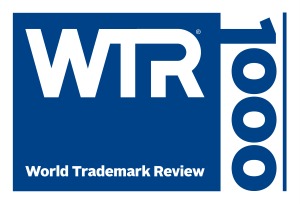The story of last year’s Chapter 11 filing by Neogenix Oncology Inc. is a stark reminder to issuers of securities of the dangers of using unregistered “finders” or “business brokers” to assist in the offer or sale of securities. As we noted in our August 25, 2009, Client Alert, “Unregistered Finders: A Trap for the Unwary,” the risk is not just to the unregistered “finder,” but to the issuer and its stockholders as well.
Neogenix was a development stage biotechnology firm that surprised its investors by filing for Chapter 11 bankruptcy protection in February 2012. Neogenix appeared to have been an otherwise successful company, but an inquiry by the U.S. Securities and Exchange Commission (SEC) into the company’s earlier capital raising efforts showed that Neogenix had made payments to unlicensed individuals who assisted in the company’s capital raising activities. These persons should have been licensed with a registered broker-dealer under U.S. securities laws. As a result, Neogenix made sales through unregistered broker-dealers in violation of Section 29 of the Securities Exchange Act of 1934 (the “Exchange Act”), and consequently had a significant potential rescission liability for the securities it sold in connection with the unregistered broker-dealer. Neogenix was unable to quantify the extent of its rescission exposure and its auditors could not sign off on Neogenix’s financial statements. As a result, Neogenix could not file its quarterly or annual financial statements with the SEC, and the resulting reporting failure, as well as the ongoing SEC inquiry and accounting uncertainty, prevented Neogenix from raising additional funds. As a development stage company, the new inflow of funding was essential to the Neogenix’s continued operations. In order to continue its operations, Neogenix had to sell its assets to a new entity owned by certain stockholders of the company and then “cleanse” the assets from subsequent stockholder claims through a bankruptcy proceeding under Chapter 11. The process was expensive, time consuming and could have been avoided through better attention to the services of the people used in their offering process.
Section 29 of the Exchange Act requires that offers and sales of securities in the U.S. must be made by a registered broker-dealer or appropriately licensed individuals associated with a registered broker-dealer. An exemption often relied upon by many in the securities industry is the so-called “finders” exemption. Contrary to what many industry participants think, the finder exemption is very narrow (if it can be relied upon at all). If a “finder” assists in negotiations, participates in structuring the transaction, pricing the security or any other activity in the transaction other than introducing the parties, the finder may be deemed to be acting as a broker-dealer. Finders should typically not be paid a commission or a fee based on the success of a transaction.
There are a number of risks to issuers in relying on the services of unlicensed broker-dealers in a capital raising transaction, including:
- Rescission. Under Section 29(b) of the Exchange Act, contracts entered into in violation of the Exchange Act may be rendered void. Courts have used this statute to declare securities transactions entered into with unregistered broker-dealers to be void. Issuers that use an unregistered broker-dealer’s services may find themselves in a position like Neogenix, where the sale of the securities using the broker dealer’s services could be void and be required to make a rescission offer to the purchasers of those securities.
- Loss of Exemption from Registrations. In addition, the use of an unregistered broker-dealer in a transaction could cause an issuer to lose any exemption from the registration requirements of the Securities Act of 1933, as amended, and from applicable state law qualification requirements, it may have relied upon in that transaction. Accordingly, the issuer may have a difficult time obtaining a legal opinion from its counsel in connection with that transaction or a future transaction.
- Aiding and Abetting Liability. Use of an unregistered broker-dealer may also subject an issuer to civil and criminal penalties, including pursuant to Section 20(e) of the Exchange Act, on the theory that the company aided or abetted the unregistered broker-dealer.
- Violations of State Securities Laws. In addition, various state laws may provide stockholders with rescission rights as well, even where the unregistered finder did not contract directly with investors.
Issuers need to be wary, or they could find themselves in a situation like Neogenix, where past offers and sales of securities can result in a right of rescission to stockholders and come back to later haunt the issuer. Issuers using the services of a finder should carefully consider the types of activities the finder will be conducting and make sure that, if necessary, the finder is a registered broker-dealer or is appropriately relying on the “finder” exemption.













